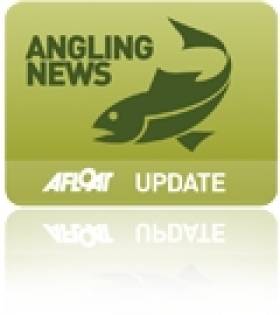Displaying items by tag: World Shore Angling Championships
Gold Times Two For Irish Teams At Shore Angling Worlds
#Angling - It was double gold for Ireland’s men and women at the World Shore Angling Championships in Wexford this week, as the Irish Examiner reports.
And it’s a result that’s put the sport of shore angling firmly “back on the map” in Ireland, according to the Irish Federation of Sea Angling’s Brian Reidy.
Top prize for the men’s team saw them leap up two spots from their bronze-medal finish at last year’s event in Portugal’s Algarve, their best placed finish since winning in 2010 (they also came third in 2012).
But it was an even more impressive outing by the Irish women’s team, who were competing for the first time ever at top level and held on to their early lead for the full week’s fishing.
The Belfast Telegraph profiled the team ahead of the competition, noting that it was a family affair: mother and daughter Janet Snoddy and Lisa Gormley cast their lines as part of the six-women squad, while Lisa’s father — and Janet’s husband — Jim Gormley served as team manager.
Bronze For Team Ireland At 2015 Shore Angling Worlds
#Angling - It was a podium finish in Portugal for Team Ireland at the 32nd World Shore Angling Championships last month.
A fourth-place finish on a tough fourth day of the week-long contest was enough to secure the bronze medal for Ireland's eight-strong angling team in the Algarve on 26 November, as Fishing in Ireland reports.
"The importance of this result cannot be overstated," said Irish Federation of Sea Anglers (IFAA) chairman Michael Quinn as the team arrived back at Dublin Airport on 28 November.
"It shows that Ireland’s anglers are among the very best in the world and can compete with the very best in the world at the highest international level."
Ireland last claimed the world bronze medal in the Netherlands in 2012,as previously reported on Afloat.ie.
Next year's Shore Angling Worlds will be held in Wexford between 12 and 19 November.
Ireland Take Bronze in 2012 Shore Angling Worlds
#ANGLING - Ireland's shore angling team have taken the bronze medal at the 2012 World Shore Angling Championship held at Veere in the Netherlands.
Brian Cooke of the Irish Federation of Sea Anglers (IFSA) reports that the fishing was very tough over the week, with anglers casting into a shipping channel that contained tackle grabbing ledges.
The predominant species were dabs to 30cm, whiting, pouting and some lovely soles, he says, noting that the weather was very changeable, and gales combined with big tides to test the resolve of the competitors. Most fish were taken at distance and zones were won with 15-25 fish.
The Irish team improved their position each day, finishing seventh on day 1 and moving up to fifth and fourth on succeeding days.
Coming into the final session, the Irish needed to close a four-point gap on the Italian team in third, which Cooke describes as "a massive gap to overturn in this event given the quality of the opposition".
But the Irish team pulled it off, says Cooke, "using all their experience and skills to leapfrog the Italians and claim another World Championship medal for an Irish Shore team.
"The qualification pool system has certainly proved a success, this medal adding to the gold won by Ireland in South Africa in 2010," he adds. Cooke congratulated team manager Tom Lillis and the six-man squad: Martin Howlin, Joe Duggan, John O’ Brien, Derek Kenrick, Eugene Farrelly and Kieran Begadon.






























































